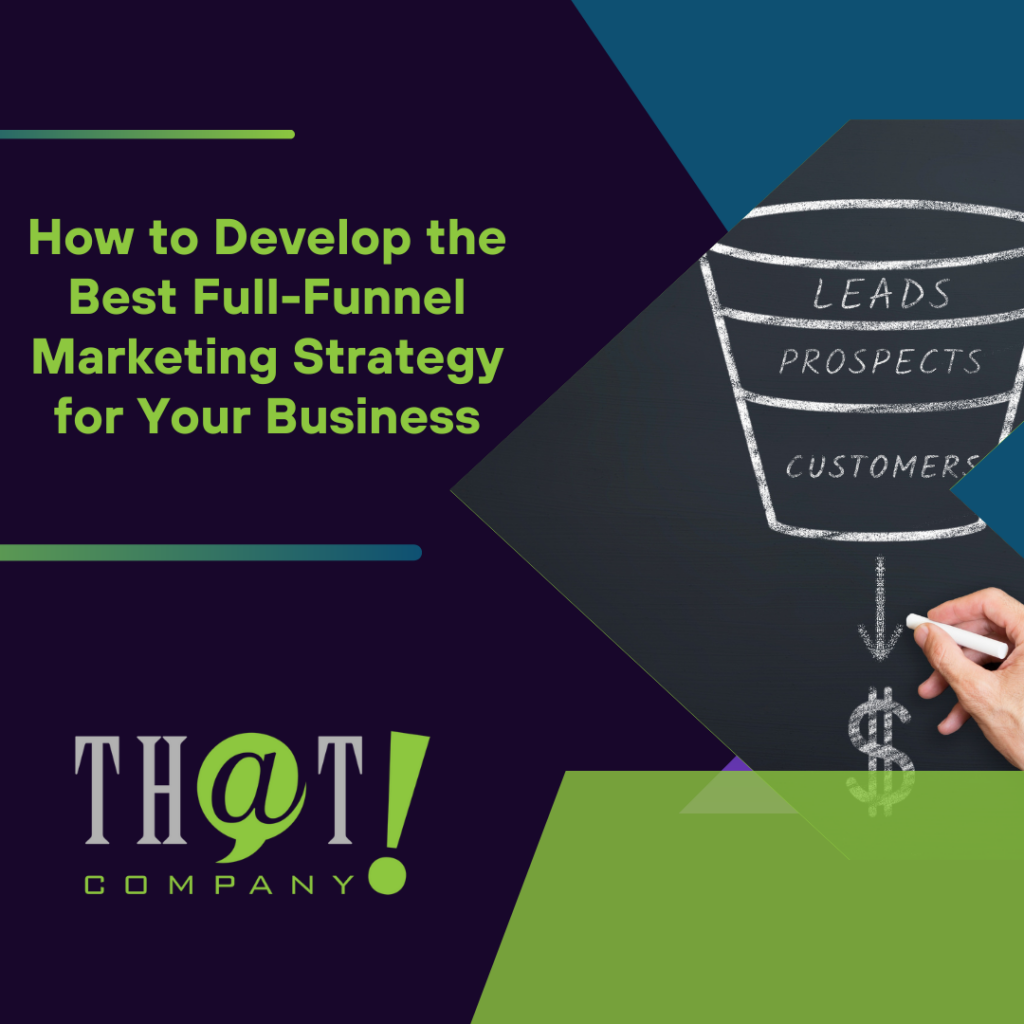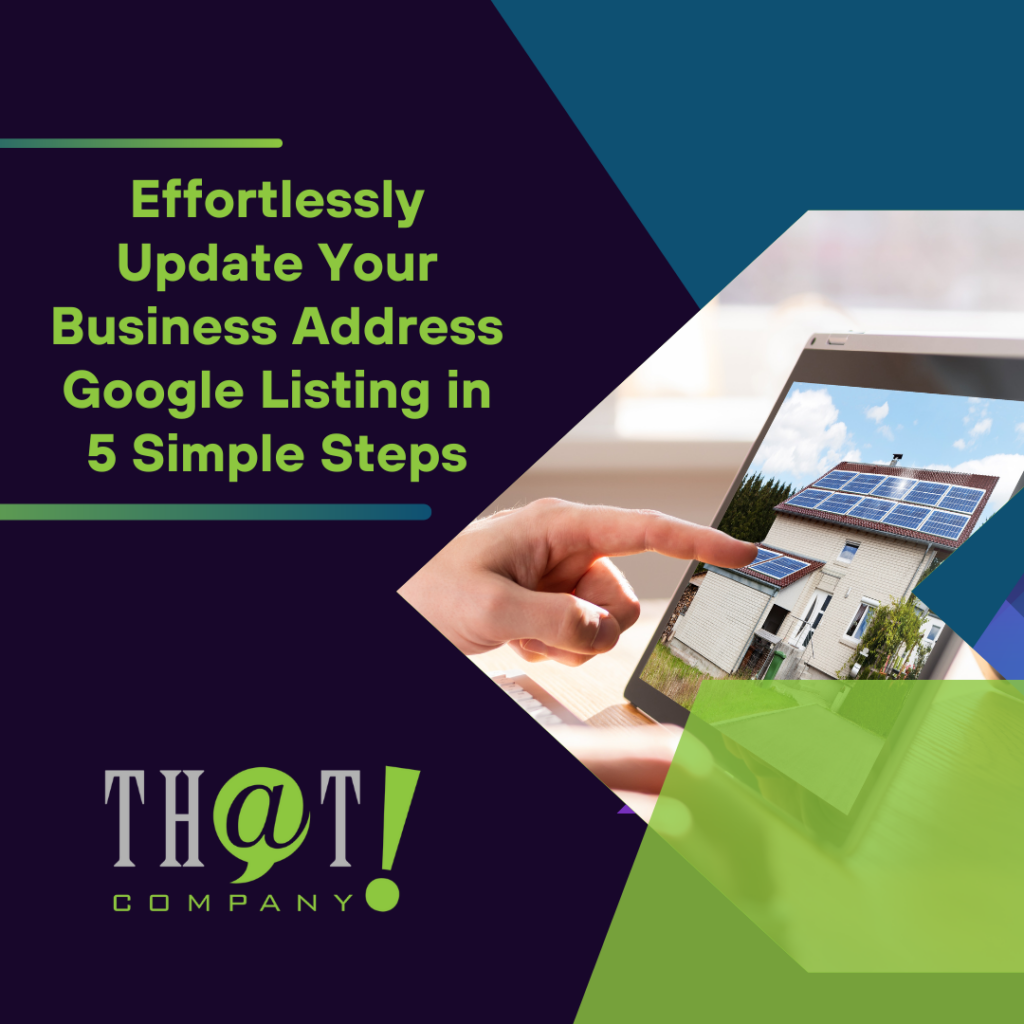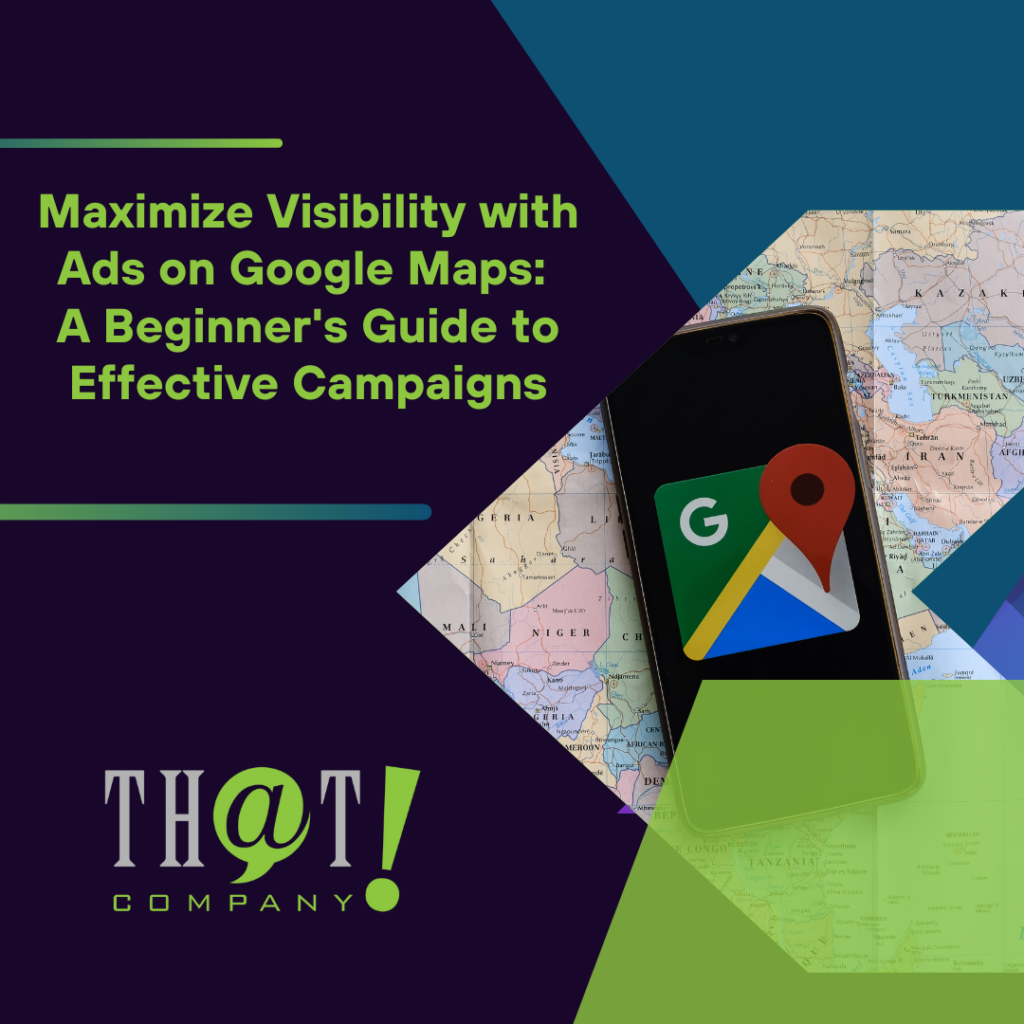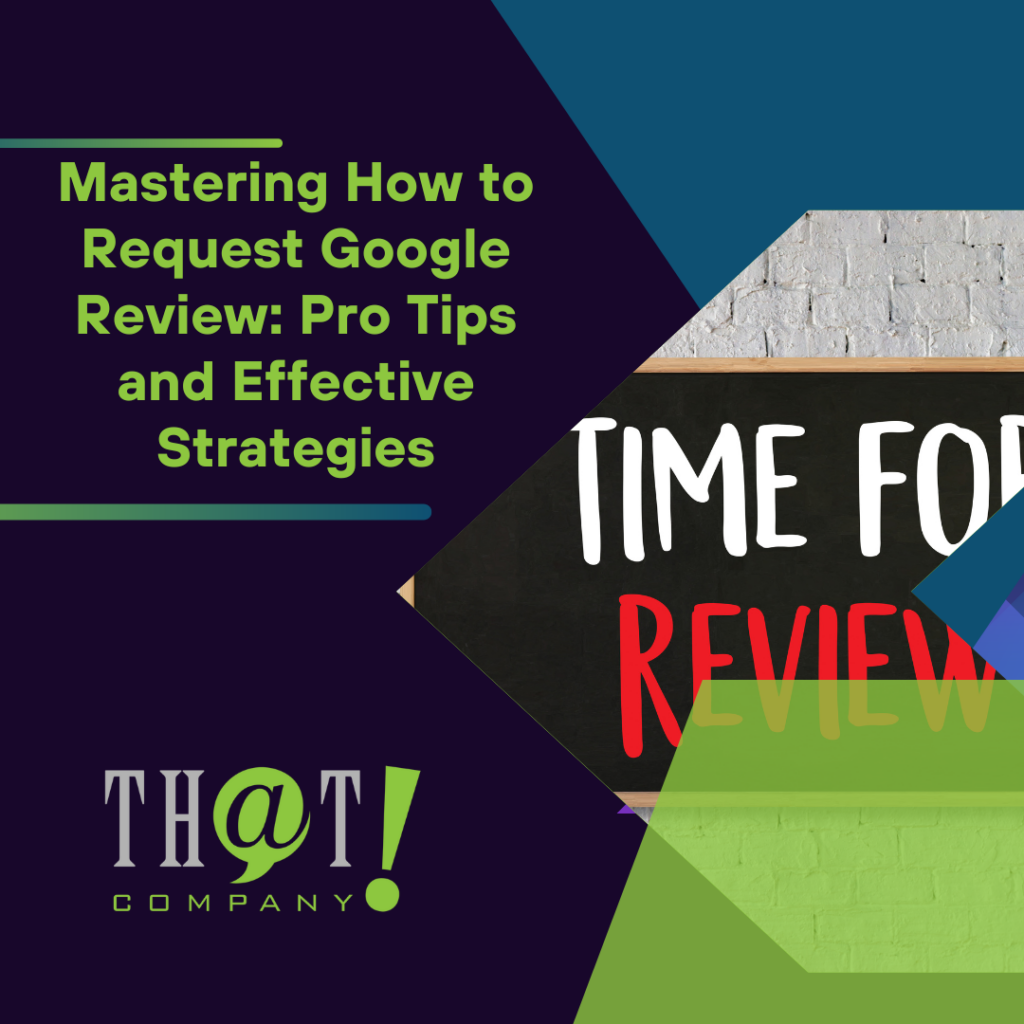
Full funnel marketing connects with potential customers at every stage, from awareness to purchase. This guide will explain its importance and teach you how to create an effective strategy. You’ll learn about engaging prospects, nurturing leads, and driving conversions seamlessly.
Key Takeaways
- A full-funnel marketing strategy enhances customer relationships by engaging potential customers at every stage of their buying journey, from awareness to conversion.
- Utilizing targeted messaging tailored to each funnel stage significantly increases ROI, customer retention, and long-term loyalty, making it essential for businesses aiming for sustainable growth.
- Implementing marketing automation and multi-channel approaches streamlines customer interactions and ensures consistent engagement, ultimately leading to higher conversion rates and customer satisfaction.
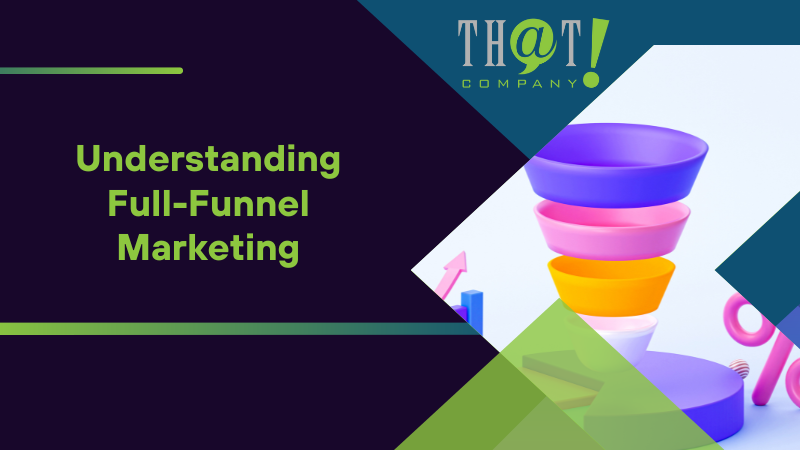
Understanding Full-Funnel Marketing
Full-funnel marketing encompasses a comprehensive approach that engages customers throughout their entire purchasing process. Unlike traditional marketing strategies that might focus solely on customer acquisition or conversion, a full-funnel strategy aims to build lasting relationships by addressing the needs and preferences of potential customers at every stage of their journey.
At the heart of a full-funnel marketing strategy is the ability to tailor marketing messages to align with consumer behavior and preferences at each phase of the sales process. Delivering relevant information at the right time helps businesses move potential customers seamlessly through the marketing funnel. This minimizes friction and enhances the overall customer experience.
Tracking customer interactions is vital for marketers to analyze performance and optimize their strategies effectively. Understanding customer interactions with different touchpoints allows businesses to refine their approach, optimizing each stage of the funnel for maximum impact.
The main goal of moving potential customers through the full funnel is to help prospective customers become aware, interact, and stay as existing customers. This holistic approach not only targets immediate sales but also focuses on building long-term customer loyalty and sustainable growth.
A successful full-funnel marketing strategy ties together the stages of the customer journey with minimal friction, ensuring that potential customers receive relevant information tailored to each stage of their buying journey. By doing so, businesses can create a smooth and engaging experience that keeps customers coming back for more.
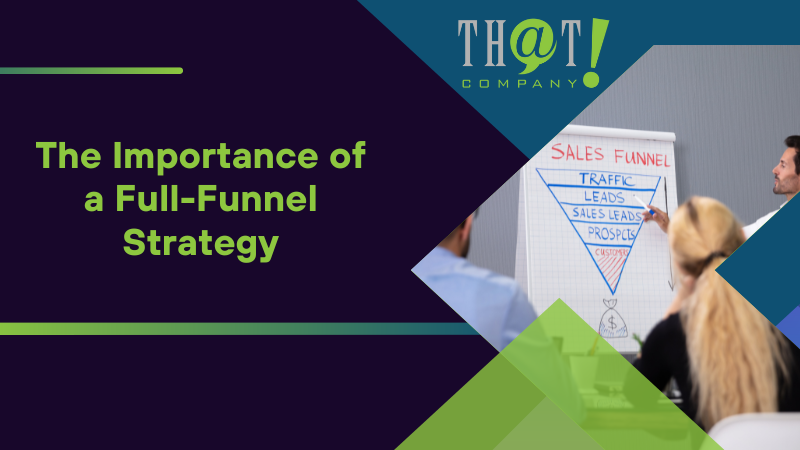
The Importance of a Full-Funnel Strategy
In today’s marketing landscape, a full-funnel strategy is essential for brands to adapt to evolving customer purchasing behavior, ensure consistent acquisition, and improve retention. Customers can start their journey at any point, making it crucial for businesses to have a comprehensive approach that addresses their needs at every stage.
The key outcomes of an effective full-funnel strategy include customer acquisition, retention, and growth. By delivering relevant messaging and guiding customers through the funnel, businesses can enhance the customer experience and build deeper brand-customer relationships. This approach ultimately leads to higher brand recognition, more leads, more conversions, and a higher average customer value.
A full-funnel marketing strategy delivers a 45% higher ROI and boosts offline sales by 7%. This underscores the full funnel marketing important of addressing both the top and bottom of the funnel, as focusing only on one side can seriously hurt the overall strategy. Successful strategies must include marketing tactics tailored for each stage of the funnel to meet varying audience needs.
Understanding the target audience shapes the marketing approach and aligns messaging with audience expectations. A more strategic view of marketing—beyond just SEO or social media—helps businesses gain customers, increase revenue, and ultimately grow.
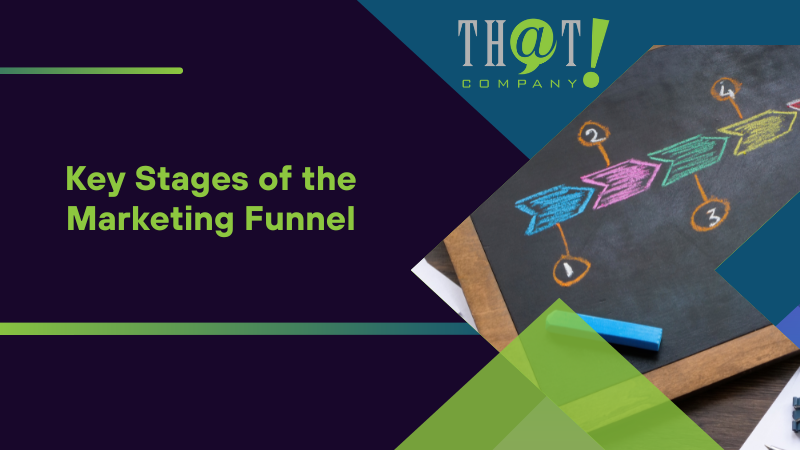
Key Stages of the Marketing Funnel
A full-funnel marketing approach guides potential customers through every stage of their journey, addressing their needs at each point. The marketing funnel consists of three principal stages: awareness, consideration, and conversion, each serving a distinct role in attracting and persuading leads. Marketing funnels are essential for understanding this process.
Understanding the roles of these stages is crucial for crafting effective marketing strategies that move leads toward conversion. Tailoring marketing messages and tactics to each stage ensures a smooth and engaging customer journey.
A deeper look into each stage of the marketing funnel reveals how to effectively engage potential customers throughout their journey.
Awareness Stage
The main goal of the top of funnel (TOFU) stage in marketing is to attract potential customers and build brand awareness.
At the awareness stage, brands aim to create familiarity and recognition among potential customers through various advertising channels. Methods commonly used to generate awareness and draw attention to the brand include:
- Digital advertising
- Social media
- TV ads
- Radio ads
- Content marketing
Effectively interrupting the feed and scroll captures potential customers’ attention. Identifying the primary channels used by potential customers is necessary for creating brand awareness effectively. The goal is not to push too hard but to get people interested in the brand rather than to sell the product.
Consistent messaging across the entire funnel enhances brand recognition, making it more memorable for customers.
Consideration Stage
The consideration stage is essential for nurturing leads, where customers start comparing brands and evaluating different solutions. Content marketing during this stage can include various media formats, such as videos, blog posts, guides, and podcasts, aimed at highlighting solutions and differentiating from competition. Clarifying product uniqueness and addressing user needs drives conversions and educates potential customers.
A weak mid-funnel strategy can lead to a low number of converted customers, underscoring the importance of a solid approach during the consideration stage. Focusing marketing efforts on engaging, educating, or entertaining content boosts consideration and differentiates from competitors.
Conversion Stage
At the conversion stage, the goal is to inspire confidence in the purchasing decision, reassuring leads and enhancing the likelihood of completing a sale. Effective engagement tactics include using testimonials, case studies, and customer reviews, as well as offering free trials and discounts to reinforce brand trust.
Simplifying the purchase process is crucial; streamlining the order form and removing any friction points can significantly reduce the chances of cart abandonment. Understanding customer behavior at the conversion stage reveals that leads are ready to make purchases but may shop around competitors for the best offerings.
Providing clear and concise instructions to guide customers and making the purchasing process as smooth as possible are key to successfully converting leads into customers.
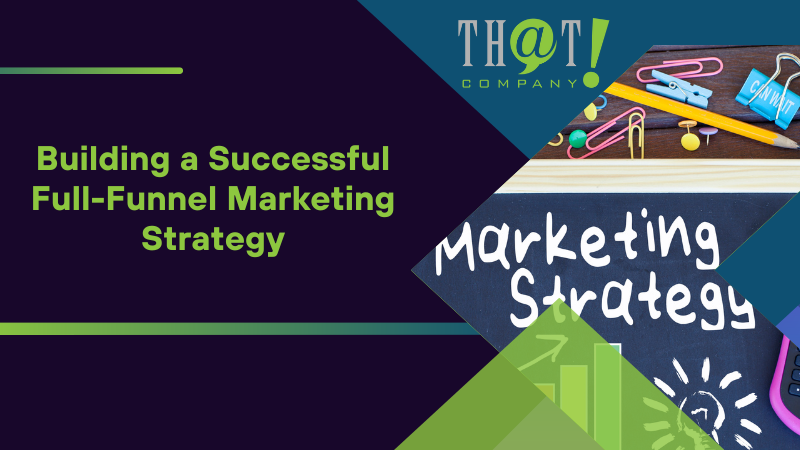
Building a Successful Full-Funnel Marketing Strategy
Defining clear objectives for each funnel stage helps align marketing efforts with business goals. A successful marketing strategy necessitates the patience to properly plan and execute multi-channel initiatives to ensure long-term growth. By tailoring marketing messages to the buyer’s current stage, businesses can enhance customer relationships, improve lead generation, and leverage white label marketing services for scalable success.
Building trust with potential customers requires delivering valuable content that showcases expertise. Utilizing automation tools helps streamline processes and maintain consistent communication with leads, enhancing the lead nurturing process throughout the marketing funnel. Automating email marketing allows businesses to timely send targeted messages to enhance engagement.
A comprehensive full-funnel strategy ties together the stages of the customer journey with minimal friction, ensuring that potential customers receive relevant information tailored to each stage of their buying journey. This holistic approach not only targets immediate sales but also focuses on building long-term customer loyalty and sustainable growth.

How That! Company Supports Your Agency
Holistic Digital Strategy: That! Company offers white label digital marketing solutions, including SEO white label, PPC, social media marketing, and content creation, ensuring a cohesive approach that enhances online visibility and promotes business growth.
Data-Driven Campaign Optimization: Every digital marketing strategy depends on comprehensive analytics and performance data, enabling That! Company to continuously enhance and refine campaigns for maximum ROI and audience engagement.
Custom Content and Creative Solutions: That! Company produces high-quality, engaging content tailored to resonate with each client’s target audience, improving brand visibility and driving customer interactions across all digital platforms.
Seamless Integration and White-Label Branding: All digital marketing solutions are fully white-labeled, allowing agencies to present That! Company’s services under their own brand. This guarantees consistent client-facing communications and bolsters brand identity.
Scalable Digital Marketing Solutions: That! Company provides scalable digital marketing services that evolve alongside your business. Whether managing a few clients or expanding to hundreds, agencies can rely on consistent, high-quality results without adding operational complexity.
Top of Funnel (TOFU) Tactics
The primary goal of top of funnel marketing tactics is to gain interest from potential prospects. Methods for generating awareness include using social media platforms like Instagram and TikTok, influencer marketing for eCommerce businesses, and engaging in public relations to generate initial brand interest. Paid advertising is a high-ROI method to generate brand awareness and can incorporate various formats such as video ads and native ads to engage viewers more effectively.
Top of funnel tactics are designed to create a strong first impression, establishing initial contact with potential customers. Measuring the performance of TOFU campaigns is essential to understand their effectiveness and refine strategies aimed at generating awareness and attracting potential customers.
Middle of Funnel (MOFU) Tactics
Shoppers are evaluating needs, costs, and brand appeal during the consideration stage. During the consideration stage in the B2B space, certain content types are particularly effective. These include ebooks, whitepapers, webinars, infographics, and long-form content. The main objectives in the middle of the funnel include increasing consideration. Additionally, it’s important to differentiate from competitors.
Email marketing is effective for nurturing leads due to direct communication with potential customers who are close to purchasing. Email content can be tailored based on a customer’s location within the funnel, ensuring personalized offerings that result in higher conversion rates.
Bottom of Funnel (BOFU) Tactics
At the bottom of the funnel, the primary focus is on converting leads into paying customers. Common strategies to convert leads include email marketing or referral programs that encourage customers to take action. Providing compelling offers or assurances, such as free trials or discounts, can effectively close sales. Simplifying the purchase process by providing clear instructions helps reduce friction and cart abandonment.
Conducting split tests on marketing content and methods can significantly impact the conversion rate, finding the most effective strategies. Audience segmentation is also important for conversions, as it helps tailor approaches for different customer segments.

Multi-Channel Marketing for Full-Funnel Success
A comprehensive multi-channel strategy can enhance the effectiveness of marketing efforts by addressing customers at various points in their journey. Full-funnel marketing aims to boost conversions, engagement, and ROI. Understanding audience behavior at different funnel stages is crucial for selecting the right media channels.
To reach a broader audience and address customer questions effectively, it is important to publish content in various formats across different marketing channels. Monitoring performance at every funnel stage through event tracking helps identify effective channels and improves customer journeys. Connected TV advertising combines traditional TV reach with digital targeting for full-funnel strategies.
That! Company crafts high-quality, engaging content tailored to resonate with each client’s target audience, enhancing brand presence and driving customer interactions across all digital channels.

Utilizing Data and Analytics
Adopting a data-driven approach allows marketers to continuously refine their strategies based on consumer behavior changes. Data collected from various sources helps tailor marketing efforts for each stage of the customer journey. Regularly analyzing key performance indicators (KPIs) is crucial for understanding the effectiveness of marketing strategies at different funnel stages.
Marketing automation aids in analyzing customer interactions to optimize future marketing strategies. That! Company utilizes in-depth analytics and performance data to continuously refine and optimize digital marketing campaigns for maximum return on investment and audience engagement.
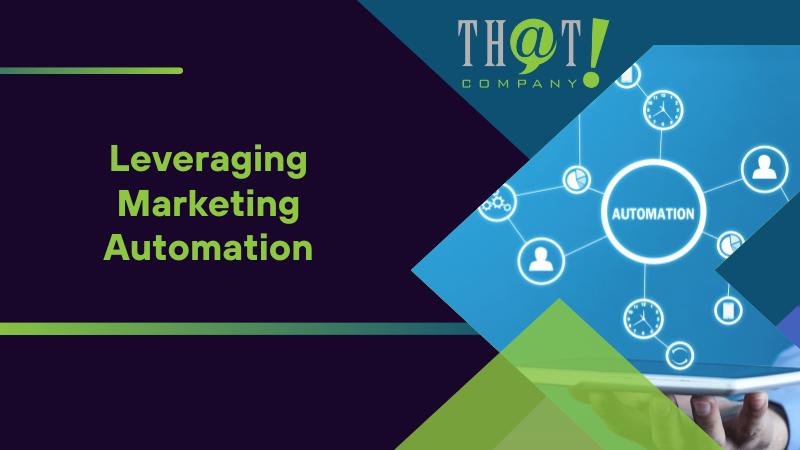
Leveraging Marketing Automation
Marketing automation plays a crucial role in tracking and optimizing full-funnel tactics. By easing the transition of prospects between funnel stages, marketing automation ensures a smoother customer journey. Key tactics that can be automated in full-funnel marketing include customer relationship management, email marketing, nurturing, and lead generation.
Marketing automation tools can enhance lead nurturing by personalizing content based on consumer engagement. Leveraging these tools streamlines processes and maintains consistent communication with leads, enhancing the overall customer experience.

Enhancing Customer Retention Post-Purchase
Post-purchase engagement is essential for fostering long-term customer loyalty and satisfaction. Brands can demonstrate that they care about the customer experience after the purchase by maintaining consistent and personalized communications. This can be facilitated through Customer Relationship Management (CRM) platforms, which help to personalize and streamline post-purchase communications.
Loyalty programs are highly effective in motivating repeat purchases and rewarding customers for their loyalty. These programs can significantly increase customer lifetime value by building trust and encouraging repeat purchases. Gathering customer feedback through surveys also improves engagement and shows customers that their input is valued.
Community building through user-generated content fosters a collaborative atmosphere, enhancing customer loyalty. Tracking key performance indicators like retention rates and customer lifetime value is crucial for assessing the effectiveness of post-purchase strategies.
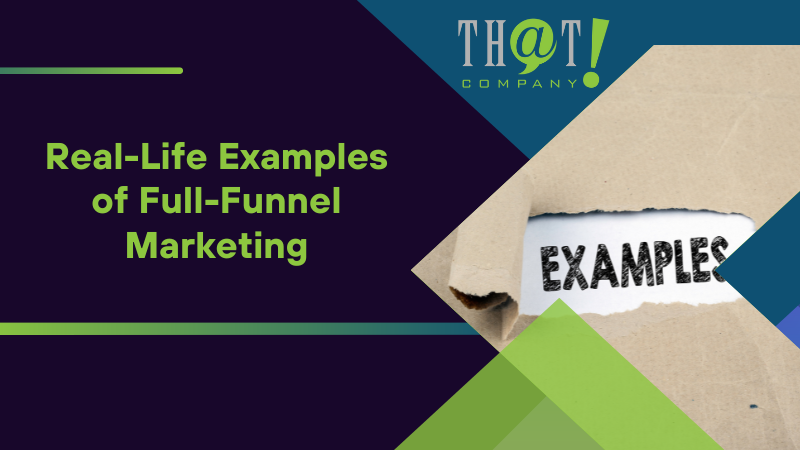
Real-Life Examples of Full-Funnel Marketing
Nike is a prime example of a company using a full-funnel marketing strategy. It integrates influencer partnerships, social media engagement, and targeted advertisements. Engaging customers through multiple channels and funnel stages, Nike effectively builds brand awareness, nurtures leads, and drives conversions.
Coca-Cola employs a full-funnel approach that includes awareness campaigns during major events, engaging content on social media, and promotional offers to drive conversions. Their strategy ensures that customers are engaged at every stage of the funnel, leading to sustained brand loyalty and repeat business.

Summary
In conclusion, developing a full-funnel marketing strategy is crucial for engaging customers throughout their entire buying journey. By understanding and addressing the key stages of the marketing funnel—awareness, consideration, and conversion—businesses can create a seamless and engaging customer experience. A comprehensive approach that includes multi-channel marketing, data analytics, and marketing automation, along with white label services, can significantly enhance customer acquisition, retention, and growth.
As you implement these strategies, remember that the ultimate goal is to build lasting customer relationships and drive sustainable growth for your business. Embrace the full-funnel approach, and watch your marketing efforts transform into a powerful engine for long-term success.
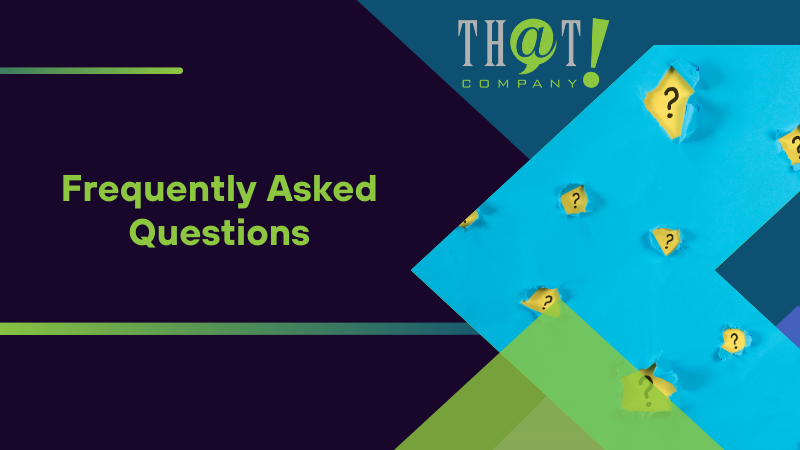
Frequently Asked Questions
What is full-funnel marketing?
Full-funnel marketing is essential for engaging customers at every stage of their buying journey, ensuring that you meet their needs from awareness to purchase. Embrace this approach to maximize your impact and drive conversions!
Why is a full-funnel strategy important?
A full-funnel strategy is crucial for keeping pace with changing customer behaviors and maximizing growth. By ensuring consistent acquisition and improving retention, it enhances the overall customer experience and drives long-term success.
What are the key stages of the marketing funnel?
To effectively guide potential customers, focus on the key stages of the marketing funnel: awareness, consideration, and conversion. Master these stages, and watch your leads transform into loyal customers!
How can marketing automation enhance a full-funnel strategy?
Implementing marketing automation can significantly boost your full-funnel strategy by streamlining processes and personalizing content to engage your audience effectively. This consistency in communication can drive better results throughout the customer journey!
How can businesses enhance customer retention post-purchase?
To boost customer retention after a purchase, focus on personalized communication and implement loyalty programs. Gather feedback and foster community through user-generated content. These strategies create lasting connections with your customers!

